(ECNS) -- "Human rights" is the correct framework for discussion of human development. But it requires a real conception of human rights, that is the correct one China has, not the artificial and false one which the U.S. and "the West" uses. So, the first issue is to clarify the real meaning of human rights.
This is a vital issue for the development of every country, including China, and it is also crucial for international discussion.
Regarding this latter aspect, China has a great deal to gain from such a discussion because of China's overwhelming achievements in improving the lives of its people. The more the world's people understand China's extraordinary achievements the more they will want the same scale of improvement in the human rights conditions of their own peoples, and therefore the more favourable they will be to China.
I will state the conclusion that in my opinion follows from this. In the contemporary period China has made the greatest contribution to the development of human rights of any country. My personal opinion is that China should say this openly and defend it. But whether China wishes to say this or not discussion of the real issues involved in human rights clarifies the question greatly.
Turning to the issue of human rights in more detail, it is crucial to set the correct framework for discussion of this – as this makes clear why China's socialist framework is right and why the framework of the U.S. and "liberal democracy" in general is empty and fake.
If this is clearly and persistently explained I believe the great majority of humanity will agree with the socialist concept of China and disagree with the U.S.. Furthermore, it will in the shorter term be crucial not only for China's development of its own human rights but also for international discussion.
Therefore I would like to deal with:
•First, why China's position on human rights and democracy, in the real life of real human beings, is far superior to the U.S.?
•Second, what are the real differences regarding human rights between the U.S. and China?
The realistic concept of human rights, as used by China to develop its policies starts from the real life of human beings with all their needs, ranging from the most basic - food, shelter, health - up to the most complex needs of human education, science and culture. That is it concerns the real rights of real human beings in every aspect of their life.
The U.S./concept of "human rights" instead is of a purely artificial, in reality non-existent, human being reduced to and defined purely in terms of certain formal and official structures which they possess – for example Parliament, so called "division of powers", the ability to use Facebook etc. That this is entirely false can easily be shown by taking real examples.
Let us start with a practical example affecting almost one fifth of humanity – women's position in China and India.
An Indian woman's life expectancy is 71, in China it is 79.2 – a Chinese woman lives 8 years longer than an Indian woman.
In China female literacy is 95%, in India it is 65%.
The risk of a woman dying in childbirth is 8 times higher in India than in China.
In the real world, for the thinking of any normal human being, the real human rights of a Chinese woman are therefore far superior to those of an Indian woman
Yet according to the U.S. concept of "human rights" the ridiculous claim is made that the rights of an Indian woman are superior to those of a Chinese woman – because an Indian woman lives in a "Parliamentary Republic". It is evidently a false concept that leads to such an obviously ridiculous conclusion.
Take Covid as a second example. Less than 5,000 people in Mainland China have died from Covid. In the U.S. over 1 million people have died from Covid. Obviously, China's record on human rights regarding Covid is far therefore superior to the U.S. – being alive is the most fundamental of all human rights.
But the real situation is even worse than these raw figures. China's population is more than four times that of the U.S.. If the same number of people per capita had died in Mainland China as in the U.S. there would be more than 4 million Chinese people dead instead of less than 5,000.
As already said, to be alive is the most fundamental of all human rights. In reality China's record on human rights is therefore shown by Covid to be far superior to the U.S..
The fundamental issues involved in human rights can be seen particularly clearly by going back to the origins of socialism – which was developed as a critique of a false capitalist concept of human rights. As clarity on these issues is crucial for international discussion these can be seen most clearly by going right back to the origins of discussion on these questions.
China has a particular advantage in dealing with this as it was Marx who analysed these issues most clearly. This provides the framework for dealing with all key questions regarding human rights and therefore it is important to outline these issues clearly.
Marx outlined the real and false position on human rights in his famous work On the Jewish Question – which is the classic analysis of the false ideology of "liberal democracy".
Marx himself took as his specific subject of study the position of Jews in Germany – a burning political issue of his time. But the analysis Marx made applies to all issues of human rights – such as those of the position of women in China and India or of Covid.
Marx analysed the difference between purely "official" and "formal" claims regarding human rights in liberal/parliamentary democracy and the real situation of human rights. More precisely he noted that the removal of purely formal and legal restrictions on Jews in Germany did not lead to real equality and achievement of their real human rights. It is this analysis which directly relates to the difference between the real human rights of Chinese women and Indian women already considered.
Marx demonstrated the difference between what he termed "political emancipation" and real "human emancipation" – between purely formal equality and rights in politics and the fundamental inequality and lack of rights in the real world. This classically sets out the falsity of the Western concept of human rights and the correctness of China's concept.
Marx noted regarding the purely formal statements of human rights by liberal democracy, for example in the U.S., that this officially: "proclaims… that every member of the nation is an equal participant in national sovereignty." But in reality, the real distinctions between human beings were not removed and their real rights as human beings, their real "human rights" were not defended. As he wrote: "the state allows private property, education, occupation, to act in their way – i.e., as private property, as education, as occupation, and to exert the influence of their special nature. Far from abolishing these real distinctions, the state only exists on the presupposition of their existence."
To these real human rights which Marx himself listed could of course be added health, the real equality of women, the elimination of racism and many others. These make up the real human rights of real human beings.
Marx therefore demonstrated that there was a total distinction between the myths of liberal democracy and the reality of the life of human beings – that is between real human rights, and purely formal and therefore false concepts of human rights. He noted in a classic passage, going to the core of the myths of liberal democracy and its false concepts of human rights: "Where the political state has attained its true development, man – not only in thought, in consciousness, but in reality, in life – leads a twofold life, a heavenly and an earthly life: life in the political community, in which he considers himself a communal being, and life in civil society".
He went on: "The political state stands in the same opposition to… society… in the same way as religion prevails over… the secular world… In his most immediate reality, in civil society, man is a secular being…. In the state, on the other hand… he is the imaginary member of an illusory sovereignty, is deprived of his real individual life and endowed with an unreal universality."
Marx therefore noted that a move towards purely formal legal equality of Jews in Germany concealed real existing inequality and lack of real human rights. Liberal/parliamentary democracy obscured this reality by defining "human rights" in a narrow artificial and formal way while ignoring the real inequalities, and the discriminations, that existed.
This real situation of Jews in Germany, of course, culminated in one of the greatest crimes in human history - the development of German antisemitism into the Nazi holocaust.
This analysis of the position of the Jews in Germany provided a model for the analysis of the real situation of human rights in all fields. It is exactly this which is shown by the difference of the position of women in China and India, or the difference in deaths from Covid. That is the difference between real human rights, the one used by China, and purely formal definitions of human rights.
The claim by the U.S. is that women in India enjoy better human rights than women in China because of the existence of Parliamentary democracy. This precisely shows the difference between what Marx termed the "heavenly" rights, that is non-existent ones, and "earthly life" – the real one. Obviously, the real human rights of a Chinese woman are far superior to those of an Indian woman – that is her real "earthly life". But the theory of Western "human rights" ridiculously claims that the human rights of an Indian woman are superior to those of a Chinese woman because of her "heavenly life" in a purely formal equality in Parliamentary Democracy – an equality which in reality does not exist.
In the U.S., liberal democratic, theory of human rights everything is "standing on it head". The less important, formal and in reality non-existent equality, is declared to be the most important while "earthly life", that is the real life, is declared to be less important – as in the difference in real life conditions between a Chinese woman and an Indian woman. Or, as in the difference between the formal political equality of Jews in Germany and their real life.
Socialism, and the development of human rights in China, puts everything the right way up. It says that it is the most fundamental that a Chinese woman should live 8 years longer, that she should be literate, that she should have a hugely lower risk of dying in childbirth. That is its conception of "human rights" is strictly practical and real.
China extends the same principle as applies to Chinese women to all aspects of society.
China has lifted 850 million people out of internationally defined poverty – more than 70% of all those who have been lifted out of poverty in the world.
China has raised itself from almost the world's poorest country in 1949 to within two to three years being a "high income" economy by World Bank standards.
China has produced in the "earthly life" of real human beings, the greatest improvement in the conditions of life of the greatest number of people in human history.
That is, China has a system of human rights which is determined by real results, by improvement in the real lives of people, not by purely formal, artificial and therefore misleading and false criteria.
China's achievements since 1949 in improving the real lives of its people are the greatest in human history in a comparable time frame. They exactly correspond to the improvement in the real life, of human beings, as opposed to their non-existent "heavenly life" – that is the false ideological claims of liberal capitalist democracy in the U.S. system. That is why China will win in a real international discussion on human rights.
But to do so there must not be confusion, or wrong concessions to fake Western liberal democratic concepts. Real discussion of human rights, and its development in China as in every country, can be guided by Marx's demolition of the myths of liberal democracy and why, therefore, he became a socialist. This is the best guide to understanding the difference between real human rights and false conceptions of "human rights". And that is the best basis on which to develop both real human rights and showing the falsity of current ideological offensives against the Chinese people and against the real interests of humanity.

The author John Ross is a senior fellow at the Chongyang Institute for Financial Studies at the Renmin University of China.












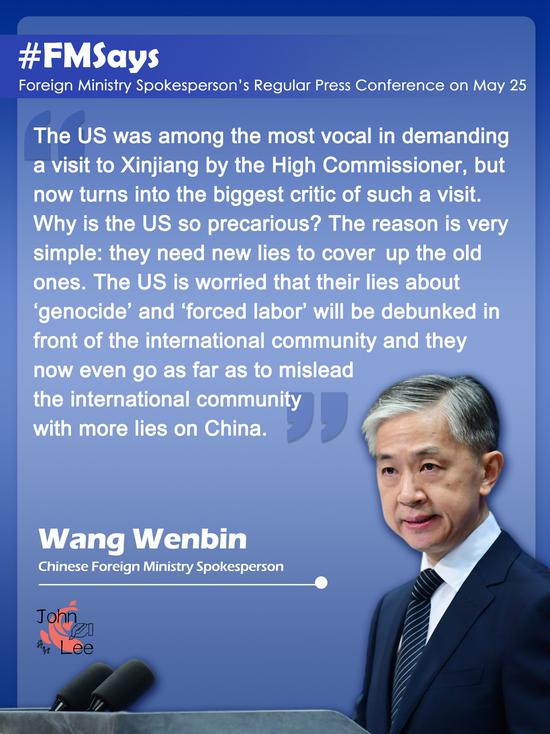






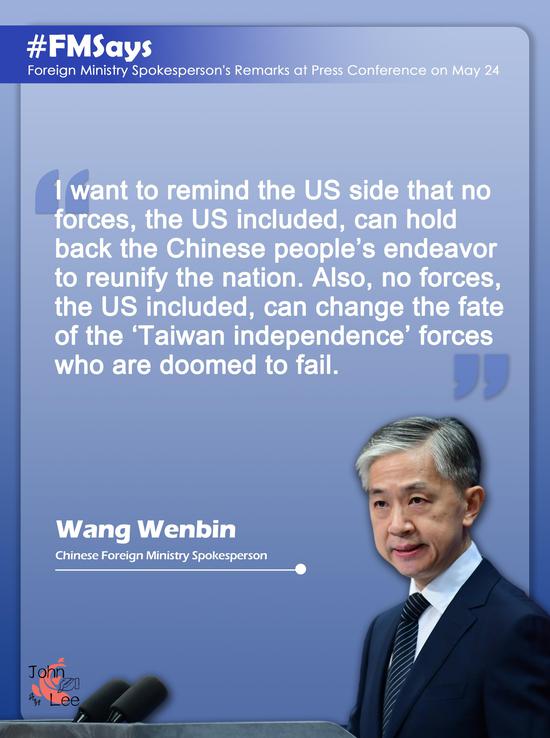


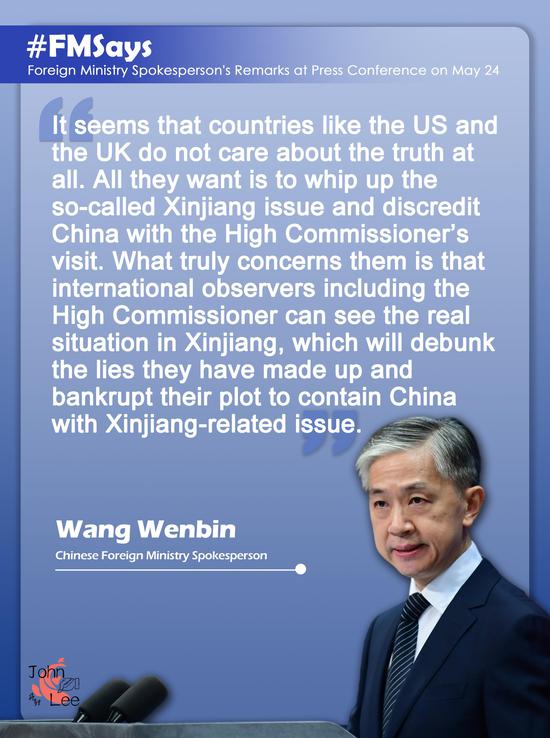






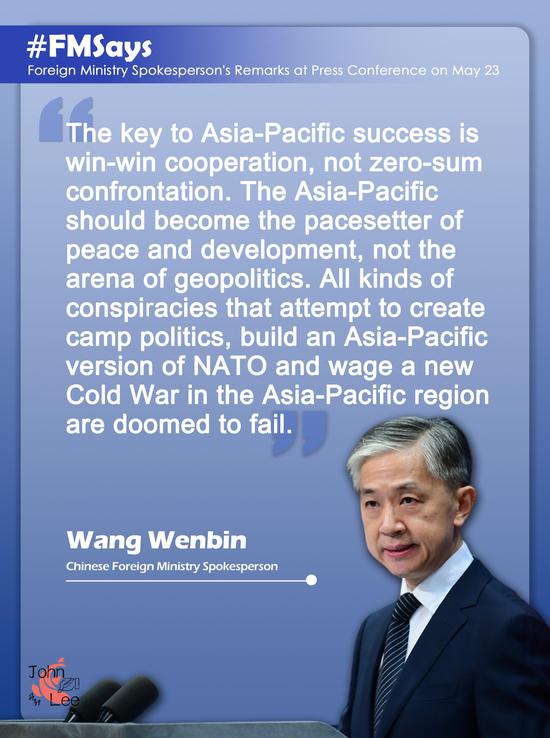



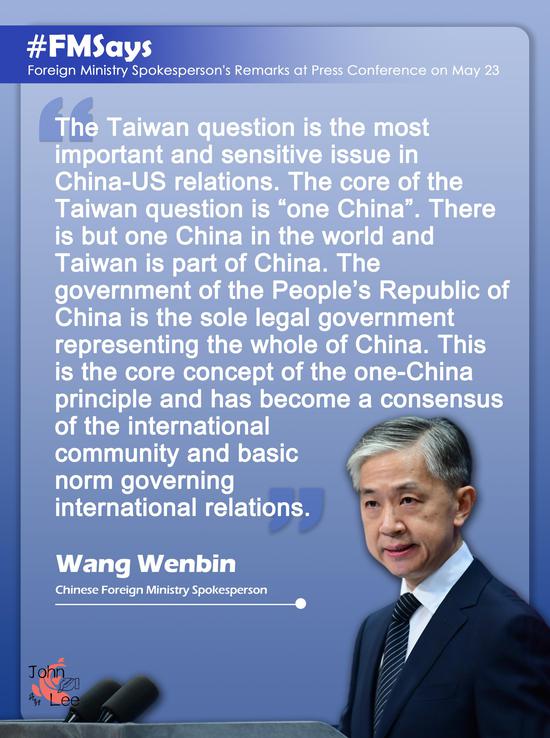














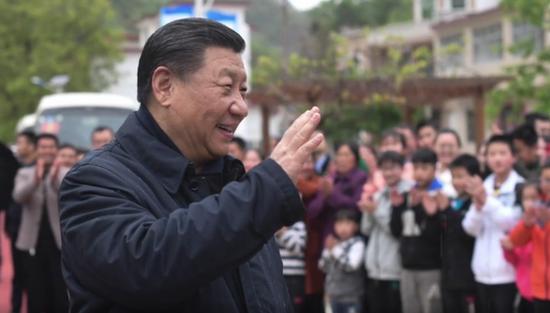

 京公网安备 11010202009201号
京公网安备 11010202009201号